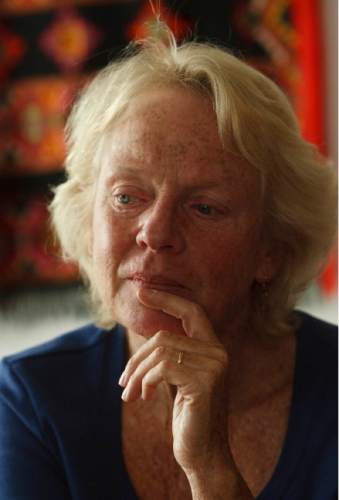This is an archived article that was published on sltrib.com in 2016, and information in the article may be outdated. It is provided only for personal research purposes and may not be reprinted.
In "Physician-assisted suicide is a danger that extends beyond the patient" (Feb. 21), family physician Brian Zehnder claims that HB264, the "End of Life Options Act, " is about "giving physicians the right to kill." Nothing could be further from the truth — and truth is scarce in his account.
A legislative committee has just referred this bill for another year of interim study; it is time to dispense with the distortions that comments like Zehnder's perpetuate; we owe that to the dying citizens of Utah.
First and foremost, physicians have no "right to kill" a patient who requests aid in dying under this proposal. Rather, the physician may provide an appropriate patient with a prescription that may allow an easier death. "Appropriate' requires that the patient must be confirmed by two separate physicians as terminally ill with six months or less of life left. The patient's request must not be distorted by depression or other mental illness. Three separate requests — two oral and one written — at least 15 days apart must be submitted by the patient. The doctor cannot pressure the patient; that would be a first-degree felony. The doctor cannot administer the drug. The doctor is required to inform the patient that he or she can withdraw the request at any time for any reason. The doctor cannot write a prescription for a child. The doctor cannot write a prescription for an elderly person solely because of age, or for anyone on grounds of disability alone.
Zehnder claims that the End of Life Options Act is "dangerous," but this choice is the best-protected, most heavily safeguarded way of dying that exists in a medical context. The vast majority of people die of diseases with fairly predictable courses — heart disease, cancer, dementia. Most of those deaths are "negotiated" — a do-not-resuscitate order is written; a living will is executed; treatment is withdrawn; opioids ease pain, often at the cost of new symptoms such as confusion or disabling fatigue; terminal sedation is set in motion for uncontrollable symptoms. All these are legal and widely used. But they are all less protected than the patient's clear choice of an easier, gentler way of dying that the proposal would provide.
Zehnder gets a lot of other things wrong. There is no documented evidence of a slippery slope affecting people in vulnerable groups, either in Oregon or in the Netherlands. Zehnder's claim that the Netherlands has expanded legalized PAS to those "not ill at all" is flatly false; the Dutch legal and medical system has extensive safeguards built around the concept of "intolerable suffering" to make sure physicians are following the rules.
Zehnder charges that end-of-life options will "ultimately destroy the doctor and patient relationship built on trust." But how could a patient really trust a doctor who is legally forced to walk away when it comes to dying? Every patient eventually dies. No physician is obligated to act under this law; but no physician should be prohibited from aiding a patient facing certain death.
Yes, we need greater acceptance and access to palliative care and hospice. We need medicines that control symptoms with fewer side effects at end of life. We need to offer emotional and spiritual support to patients and families. But we also need to respect the choices of dying patients. Losing one's life is hard enough; let it not be compounded by being forced to lose it in a way that violates one's earnest wishes and deepest values.
Margaret P. Battin, Ph.D., is a distinguished professor in the department of philosophy and the division of medical ethics and humanities at the University of Utah. Anna C. Beck, M.D., is director of supportive oncology and survivorship, an investigator at Huntsman Cancer Institute and an associate professor of medical oncology at the U. School of Medicine.



